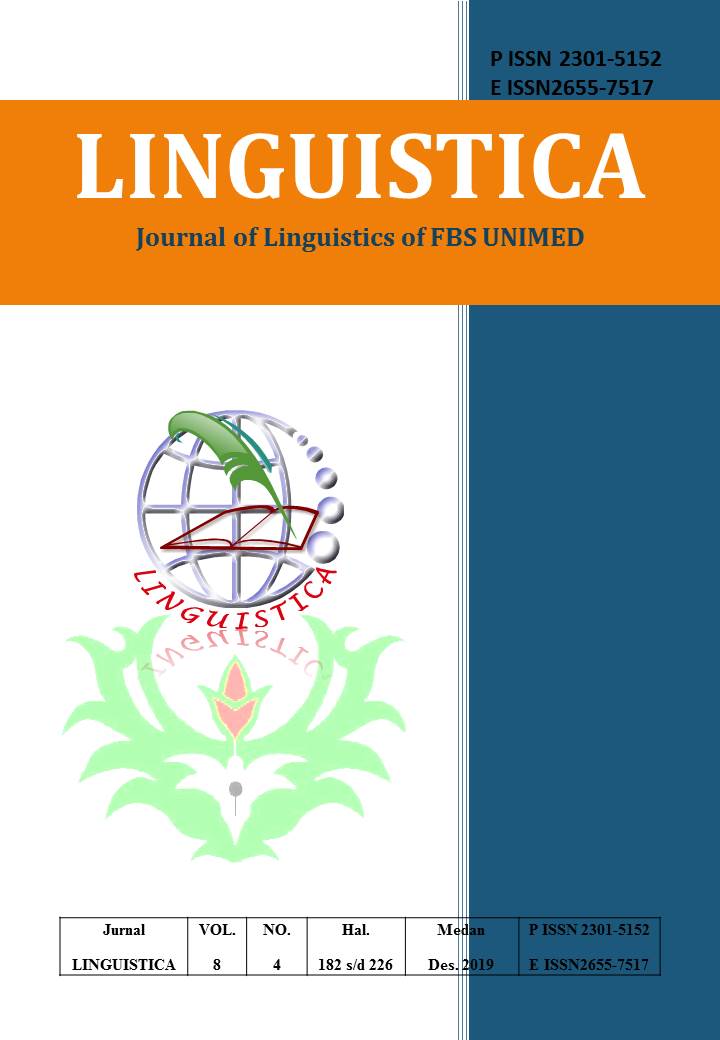POLITENESS IN USING PAKPAKNESE IN PERSONAL SUBJECT PRONOUNS IN DAILY CONVERSATION AT JAMBU MBELLANG
DOI:
https://doi.org/10.24114/jalu.v8i4.17033Abstract
This descriptive qualitative research deals with the Politeness in Using Pakpaknese in Personal Subject Pronouns in Daily Conversation at Jambu Mbellang. The problem of the study were to find the (1)types of politeness in using Pakpaknese in personal subject pronouns show daily conversation, (2)how to personal subject pronouns show daily conversation and (3)why Pakpak people need to show personal subject pronoun by Pakpaknese. The data were collected by taken 30 people (15 male and 15 female) at Jambu Mbellang District as respondent/participant were collected by using questionnaire, recording the daily conversation of Pakpaknese people,the last data the researcher used interview and then were transcribed. The data were analyzed by qualitative research based on Brown and Levinson. The result of the research shown that second types of politeness show pakpaknese,how do Pakpak people show personal subject pronouns and why Pakpak people need show personal subject pronouns. The analyzed of questionnaire that speaker male speak to male the equal language were often used and in the speaker male speak female the younger language were often used. In the speaker of female speak female show younger language to used communication and female speak male the older language were often used. types of politeness in show PSP, on record the answer how Pakpak people show PSP that conversation found four speech function , and used interview found intimacy, politeness, relation, adapting situation into ever conversation in Pakpak why Pakpak people need to show PSP.Keywords : pakpaknese, personal pronouns, politeness,Downloads
Published
2020-02-08
Issue
Section
Articles
License
Copyright (c) 2020 Pricilia Pricilia, Sri Minda Murni, Sisilia Fitriany Damanik

This work is licensed under a Creative Commons Attribution-ShareAlike 4.0 International License.
Authors who publish with this journal agree to the following terms:
- Authors retain copyright and grant the journal the right of first publication with the work simultaneously licensed under a Creative Commons Attribution License that allows others to share the work with an acknowledgment of the work's authorship and initial publication in this journal.
- Authors are able to enter into separate, additional contractual arrangements for the non-exclusive distribution of the journal's published version of the work (e.g., post it to an institutional repository or publish it in a book), with an acknowledgment of its initial publication in this journal.
- Authors are permitted and encouraged to post their work online (e.g., in institutional repositories or on their website) prior to and during the submission process, as it can lead to productive exchanges, as well as earlier and greater citation of published work (See The Effect of Open Access).
- This work is licensed under a Creative Commons Attribution-ShareAlike 4.0 International License.

